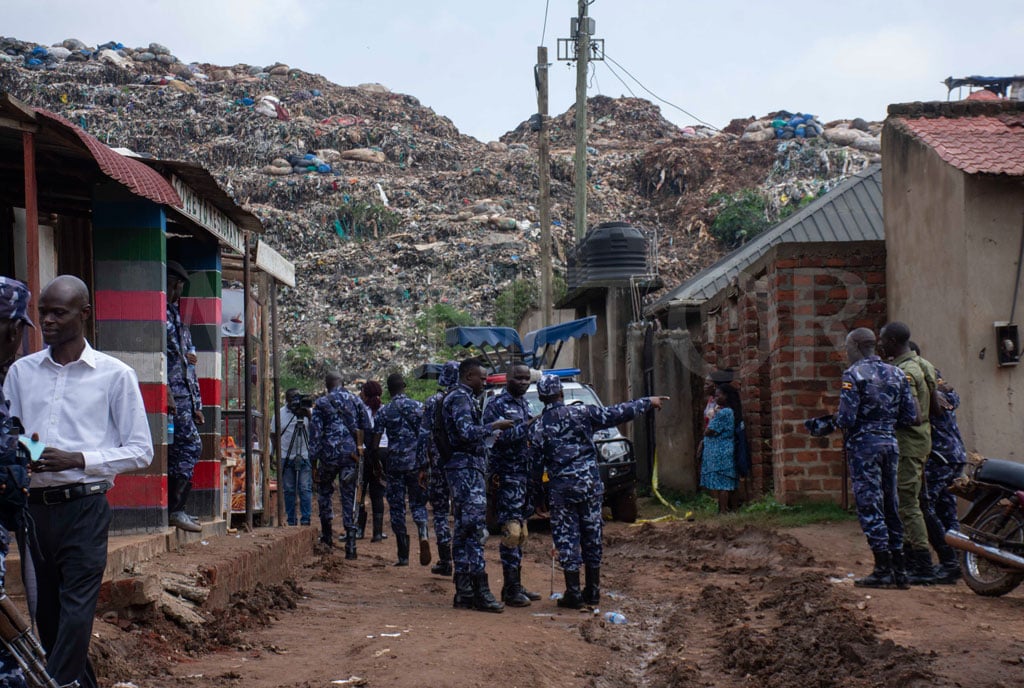How university funding gaps are affecting research, innovation

Prof Mondo Kagonyera (2nd right) after conferring a PhD to the pioneer female candidate, Ms Caroline Murezi (2nd left), during the Kabale University graduation ceremony on October 25, 2024. PHOTOS/ROBERT MUHEREZA
What you need to know:
- There is funding needs for government-sponsored students, instructional materials and staffing in science specialisations, which affect research and innovation.
Kabale University recently celebrated a milestone at its 9th graduation ceremony, awarding its first two Doctor of Philosophy (PhD) degrees in Business Administration while facing a significant financial challenge.
The university currently has a funding gap of Shs246 billion for the 2024/2025 financial year, which the Vice Chancellor, Prof Joy Kwesiga, highlighted at the event held at the Kikungiri campus in Kabale Town.
The ceremony saw 1,671 students receive degrees, diplomas, and certificates. Prof Kwesiga explained: “While the university budget estimates for the financial year 2024/2025 are Shs69.7 billion for wage, non-wage, and development funding, we face a funding gap of Shs245 billion for infrastructure development to provide adequate space for teaching, learning, office, and storage."
She also noted critical funding needs for government-sponsored students, instructional materials, and staffing in science specialisations, which affect research, innovation, and community outreach.
This graduation marked a historic achievement as PhD candidates Caroline Murezi and Paul Turyaheebwa received doctorates in Business Administration, setting a high standard for future candidates.
"They completed within the scheduled period and have therefore set the bar for others to emulate," Prof Kwesiga said.
The University Council Chairman, Mr Adison Kakuru, highlighted a rise in government grants over the past three years, from Shs200 million to more than Shs3 billion, empowering the university to enhance research, innovation, and community outreach.
“These funds have also allowed us to improve the academic environment, providing our students with more opportunities to excel in their studies and future careers,” Mr Kakuru said, commending the commitment and creativity of university staff.
The chancellor, Prof Mondo Kagonyera, urged graduates to focus on the application of their skills rather than solely their academic credentials.
“The world is no longer interested in the papers you hold. It is interested in the skills you have and how you use them to contribute to national development,” he said, emphasising ethics, integrity, and discipline as critical success tools.
Prof Kagonyera also advised Kabale University to prepare for changes driven by technology, such as Artificial Intelligence (AI), which presents both opportunities and challenges.
RESEARCH SUMMARIES
Caroline Murezi: PhD in Business Administration, specialising in entrepreneurship. Murezi's research, supervised by Prof Kaaya Siraje, Dr Moses Agaba, and Dr Cliff Richard Kikawa, explored the impact of women’s entrepreneurial competencies on the performance of female-owned small and medium enterprises (SMEs) in Uganda, focusing on Kabale District.
The study highlighted that women entrepreneurs face numerous sociocultural and economic challenges. The findings underscored the importance of interpersonal and personal competencies, alongside opportunity recognition, in business performance. The study recommends strengthening networks and relationships within the entrepreneurial ecosystem and emphasises the need for continuous education programmes for women entrepreneurs. Paul Turyaheebwa: PhD in Business Administration, specialising in accounting and finance.

Prof Mondo Kagonyera (2nd right) after conferring a PhD to the pioneer male candidate, Paul Turyaheebwa (2nd left), during the Kabale University graduation ceremony on October 25, 2024. PHOTOS/ROBERT MUHEREZA
Turyaheebwa's research, supervised by Prof Kaaya Siraje, Assocaite Prof Abanis Turyahebwa, and Dr Arthur Sunday, examined tax administration and revenue collection performance in the Greater Mbarara region, focusing on factors such as tax compliance challenges and revenue shortfalls since Covid-19.
His study revealed that the increase in informal businesses complicates tax collection, potentially causing revenue leakages. The research recommends a model for technology adoption in tax administration to enhance efficiency, accounting for institutional readiness and cultural attitudes. The university leadership noted that this historic graduation marked a new chapter for them as they continue to grow and address the challenges ahead.




